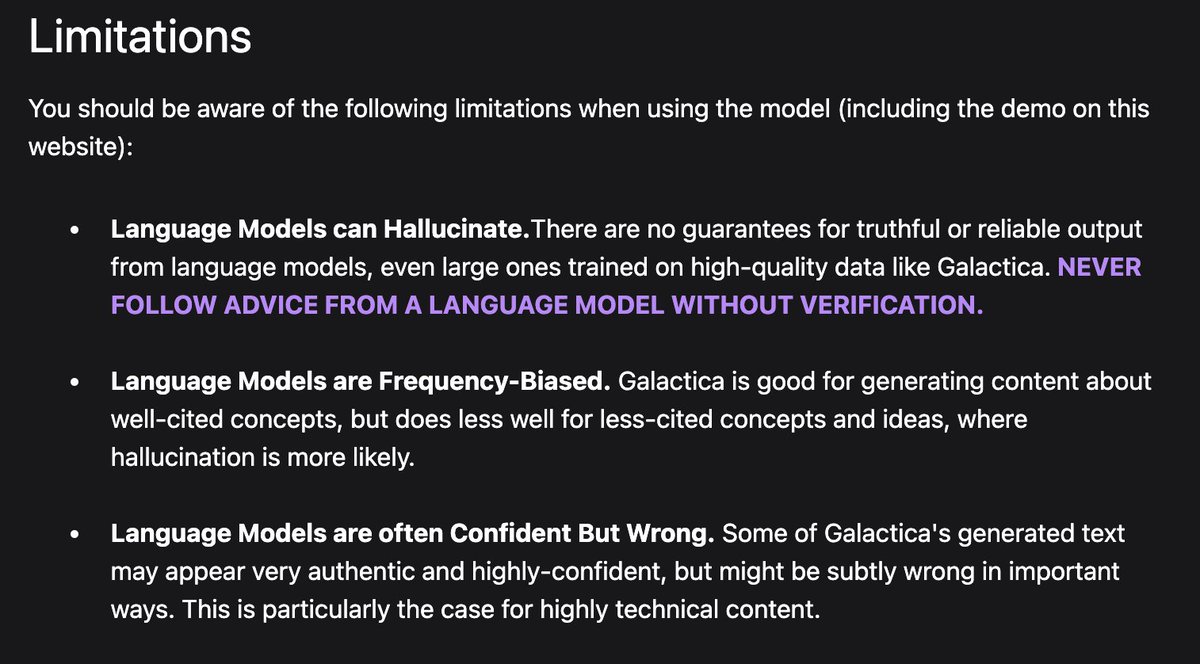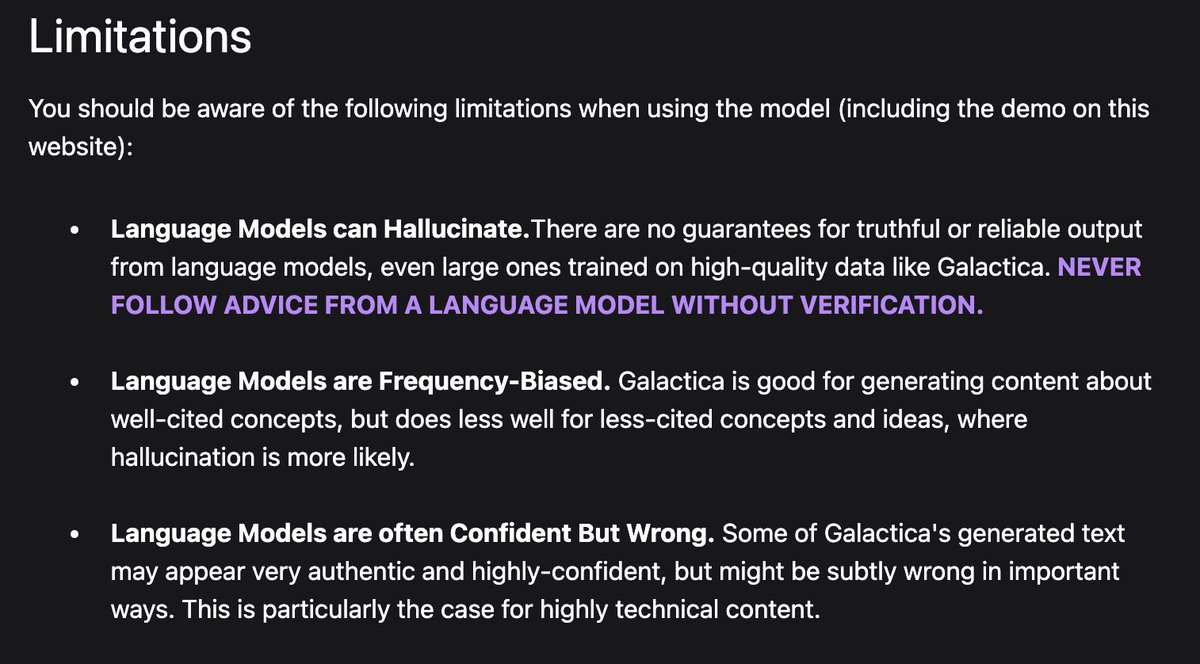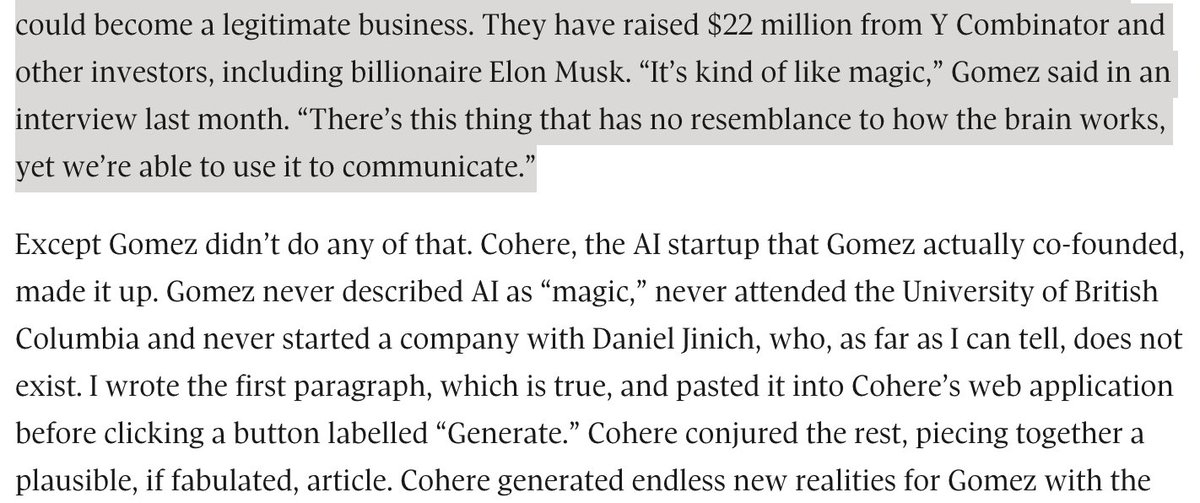Facebook (sorry: Meta) AI: Check out our "AI" that lets you access all of humanity's knowledge.
Also Facebook AI: Be careful though, it just makes shit up.
This isn't even "they were so busy asking if they could"—but rather they failed to spend 5 minutes asking if they could.
>>

Also Facebook AI: Be careful though, it just makes shit up.
This isn't even "they were so busy asking if they could"—but rather they failed to spend 5 minutes asking if they could.
>>


Using a large LM as a search engine was a bad idea when it was proposed by a search company. It's still a bad idea now, from a social media company. Fortunately, @chirag_shah and I already wrote the paper laying that all out:
dl.acm.org/doi/10.1145/34…
>>
dl.acm.org/doi/10.1145/34…
>>
In the popular press/general public-facing Q&A about our paper:
technologyreview.com/2022/03/29/104…
washington.edu/news/2022/03/1…
>>
technologyreview.com/2022/03/29/104…
washington.edu/news/2022/03/1…
>>
And let's reflect for a moment on how they phrased their disclaimer, shall we? "Hallucinate" is a terrible word choice here, suggesting as it does that the language model has *experiences* and *perceives things*.
>>
>>

(And on top of that, it's making light of a symptom of serious mental illness.)
>>
>>
Likewise "LLMs are often Confident". No, they're not. That would require subjective emotion.
>>
>>
I went digging in the paper to see if they cite #StochasticParrots or my Bender & @alkoller 2020 or @chirag_shah & Bender 2022.
That is, did they read about why this is misguided and just press ahead anyway? Apparently not.
>>
That is, did they read about why this is misguided and just press ahead anyway? Apparently not.
>>
@alkoller @chirag_shah They do cite Blodgett et al 2020 (fabulous paper!)
aclanthology.org/2020.acl-main.…
But in the strangest possible way. Are they reflecting on the possible harms their technology might engender? No, of course not. They're striving for TRUTH! And thus worried about "bias".
>>
aclanthology.org/2020.acl-main.…
But in the strangest possible way. Are they reflecting on the possible harms their technology might engender? No, of course not. They're striving for TRUTH! And thus worried about "bias".
>>

Narrator voice: LMs have no access to "truth", or any kind of "information" beyond information about the distribution of word forms in their training data. And yet, here we are. Again.
>>
>>
This thread went to Mastodon first. I'm not sure how long I'll keep bringing them here, too -- so come find me over there: @emilymbender@dair-community.social
• • •
Missing some Tweet in this thread? You can try to
force a refresh









